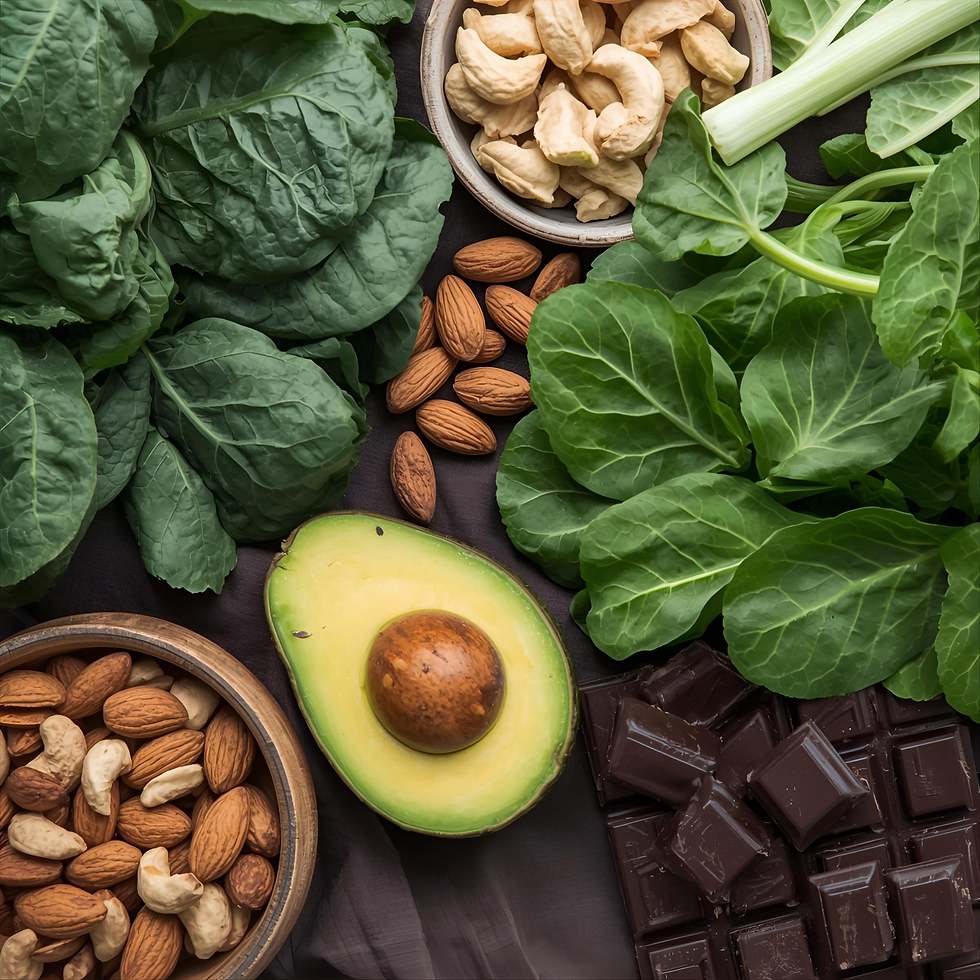Are you getting enough protein?
- Emma Hammond

- May 9
- 3 min read
Updated: Oct 1
Protein is often hailed as the building block of life – and for good reason. In our everyday diets, protein plays a pivotal role not only in muscle repair and growth but in virtually every process within our bodies. In this blog, we will explore why protein is so important, the roles it plays in maintaining health, the best sources to include in your diet, and guidance on how much you should be consuming.

Why Protein is Essential
Protein is a macronutrient made up of amino acids, which are essential compounds used by the body to support multiple functions. Unlike carbohydrates and fats, proteins have a direct role in repairing tissues, synthesising enzymes and hormones, and supporting the immune system. A balanced intake of protein is integral in ensuring that these processes run smoothly, making it indispensable for overall health and vitality.
The Role of Protein in the Body
Muscle Repair and Growth: After exercise or physical strain, protein supports the repair of damaged muscle fibres. This helps in building stronger muscles over time, which is not only beneficial for athletes but also for anyone leading an active lifestyle.
Enzyme and Hormone Production: Enzymes facilitate biochemical reactions that occur at every moment of our lives—from digestion to energy production. Hormones, such as insulin, are crucial in regulating body functions. Both enzymes and hormones are protein-derived, underscoring protein’s role in regulating bodily processes.
Immune Function: Proteins help to form antibodies—specialised proteins that help fend off illnesses. A robust protein intake supports the immune system, making it more effective at protecting the body from infections and diseases.
Cell Structure and Transport: Proteins contribute to the structure of cells and tissues. They are involved in the transport of oxygen, nutrients, and waste products within and between cells. This function is essential for the overall coordination of bodily functions.
Best Sources of Protein
Protein can be obtained from a variety of both animal and plant sources. Incorporating a diverse range of these in your diet can ensure that you receive a well-rounded profile of amino acids:
Animal Sources:
Lean Meats: Chicken, turkey, and lean cuts of red meat provide high-quality protein along with essential nutrients such as iron and vitamin B12.
Fish: Not only does fish supply protein, but fatty varieties like salmon and mackerel also offer beneficial omega-3 fatty acids, which are good for heart health.
Dairy: Milk, yoghurt, and cheese are excellent sources of protein as well as calcium, vital for bone health.
Eggs: Eggs are a cost-effective and versatile source of protein, containing all essential amino acids.
Plant Sources:
Legumes: Beans, lentils, and chickpeas are packed with protein and fibre, making them a staple in many diets.
Nuts and Seeds: Almonds, walnuts, chia seeds, and flaxseeds not only supply protein but also healthy fats and antioxidants.
Whole Grains: Quinoa, farro, and barley can boost your protein intake while adding variety and fibre.
Soy Products: Foods like tofu, tempeh, and edamame provide a complete protein, making them excellent choices for vegetarians and vegans.
Diversifying protein sources can benefit nutritional balance, especially for those who follow plant-based or vegetarian diets, ensuring that all essential amino acids are consumed.
How Much Protein Should You Eat?
The exact amount of protein needed can vary depending on factors such as age, activity level, and overall health. However, there are some general guidelines that can assist in planning your diet:
General Recommendations: For the average adult, health authorities often recommend a daily intake of around 0.75 grams of protein per kilogram of body weight. This figure, however, might be adjusted according to one's lifestyle. For example, a 70 kg adult might aim for approximately 52.5 grams of protein a day.
Active Individuals: Those engaging in regular exercise or strength training may benefit from higher protein consumption – typically in the range of 1.2 to 2.0 grams per kilogram of body weight – to aid in muscle recovery and to support increased metabolic demands.
Special Considerations: Older adults, pregnant women, and individuals recovering from illness or injury might have increased protein requirements. It is always a good idea to consult with a healthcare or nutritional professional to tailor dietary plans to individual needs.
In Conclusion
Protein is an indispensable nutrient that supports everything from muscle repair to immune function. By understanding the myriad of roles it plays and incorporating a variety of protein-rich foods into your diet, you can ensure that your body receives the fuel it needs to thrive. Whether you prefer animal-based proteins or plant-derived alternatives, the key is to maintain balance and variety. Remember that your protein needs might change with your lifestyle, so staying informed and adapting your diet accordingly is crucial for long-term health.



